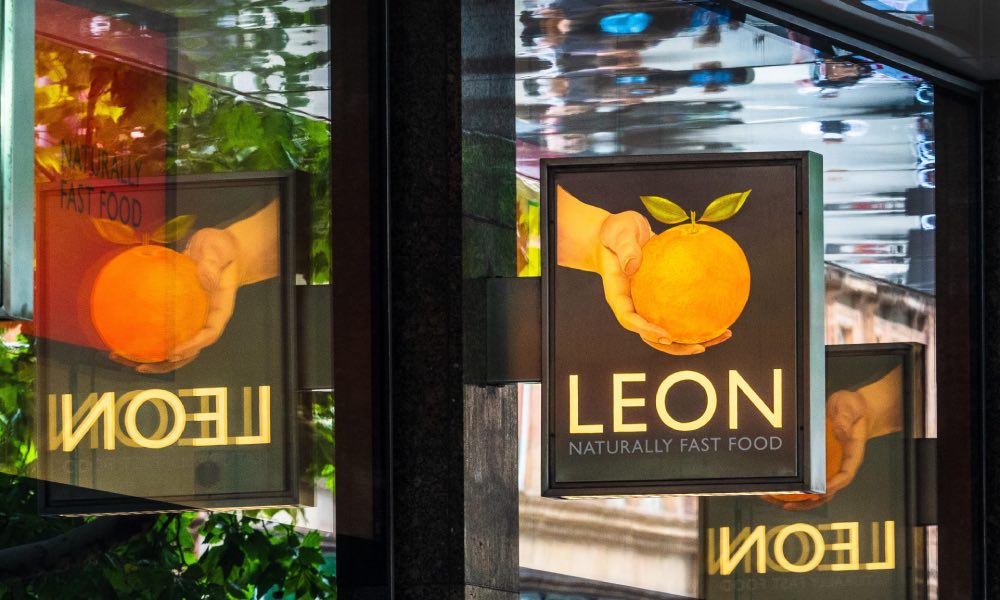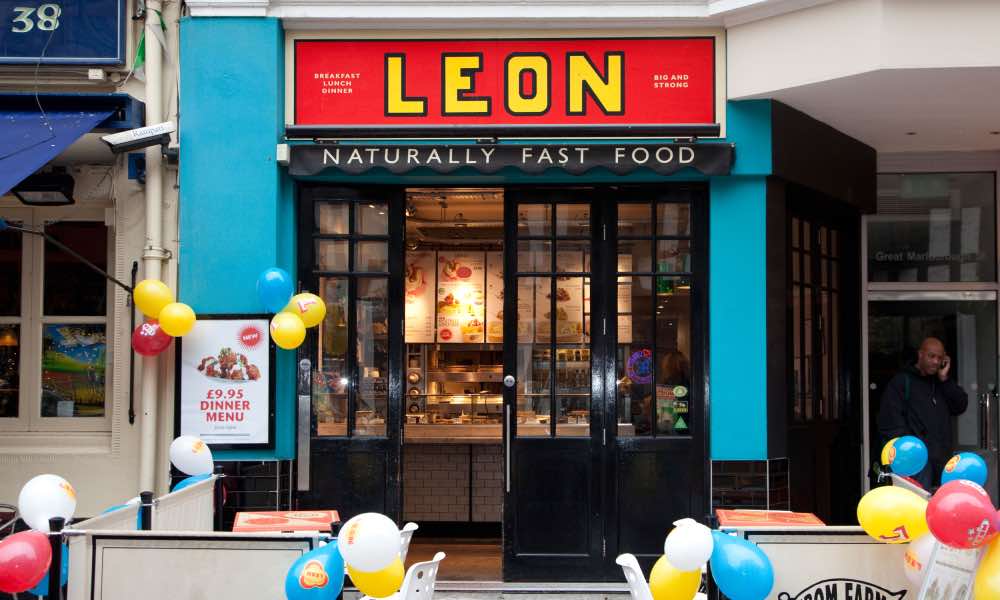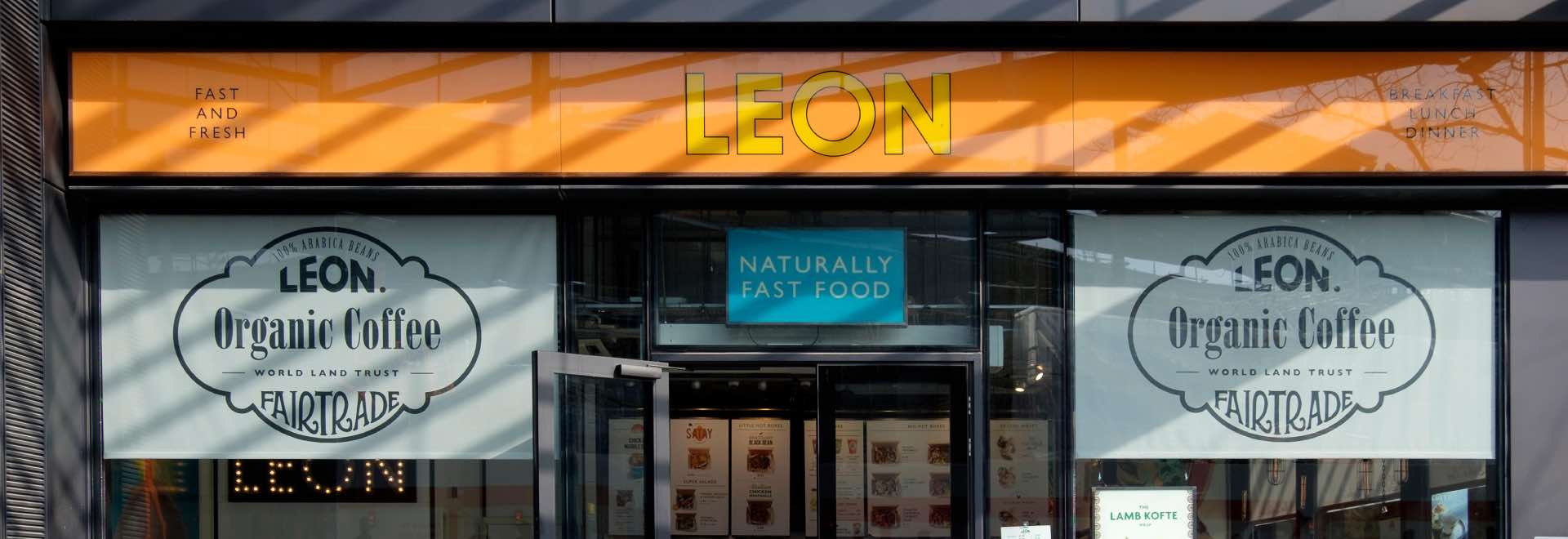How LEON is carving out a niche in the UK coffee market
Hayley Osborne looks at LEON’s approach to sustainability, and how staying aware of consumer attitudes has helped affirm their place in the UK coffee market.
It’s not very often that a brand comes along and shakes up the UK coffee market. But when LEON opened in 2004, it did just that.
Founded by John Vincent, Henry Dimbleby, and Allegra McEvedy, the “Naturally Fast Food” restaurant chain now has 61 outlets in the UK and over 80 worldwide.
Its breakneck expansion has been astonishing, with a turnover of £95 million in 2018. Behind its success is a brand image that emphasises healthy eating.
Their food was initially inspired by the flavours and natural healthiness of the Mediterranean diet – a menu catering to an increasingly health-conscious customer base. Even its children’s menu is health-focused, following the Children’s Food Trust’s guidelines for sugar, salt, and saturated fat.
LEON aims to bring their healthy brand into people’s homes, too. Their cookbook series does not shy away from the bad connotations that come with “fast food”, with titles such as “Happy Fast Food”. LEON has also partnered with Sainsbury’s, selling its coffee across 493 UK stores and becoming a part of the consumers’ everyday routine.
Sourced from Honduras and Peru, they boast “rainforest-saving coffee”. Through a partnership with the World Land Trust, 1m2 of forest is saved for every seven cups of coffee drank. So far, 2,000 acres – an area bigger than Monaco – have been saved.
Yet, LEON is not trying to conform to the ethical conventions of specialty coffee.
There is no focus on the farmer or the origin of their coffee. As such, it is differentiating itself from specialty coffee – with traceability being a cornerstone of the specialty industry.
Instead, they lead with a commitment to sustainability, reforesting, and wildlife conservation. In this way, with recognisable words like “organic” and “Fairtrade”, LEON’s coffee is becoming more accepted into the mainstream.
With just two coffees – the Dark roast and the Blonde roast – the impression LEON has made on the UK coffee market is all the more laudable.

A recognisable approach to sustainability
The UK coffee market is compact. Big brands need to work that much harder to set themselves apart from the competition.
Out-of-home coffee consumption is yet to reach pre-pandemic levels, according to the latest research from the National Coffee Association USA. Among the respondents, 83% reported having coffee at home – a 4% increase from January 2020; while 35% reported drinking coffee away from the home – down 6%.
This suggests that at-home consumption remains a major market – a market within which LEON has made itself a significant contender.
Moreover, the average supermarket consumer is allowed to feel like they are making the sustainable choice when choosing their coffee – an important factor in the UK coffee market. Working with Puro Fairtrade Coffee to ensure sustainable sourcing, their coffee is triple certified: organic, Fairtrade, and supports the World Land Trust.
On the shelf alongside other popular brands, LEON’s packaging shouts “ethical choice”.
However, specialty coffee drinkers may be harder to win over. According to a study in the British Food Journal, they have an increased awareness of the environmental and social problems that come with their cups of coffee, encouraging a more inquisitive approach to sourcing sustainable coffee.
The same research suggests that these consumers perceive chain coffee to be of low quality. As sustainability is embraced by large companies, such as LEON, specialty drinkers are unlikely to passively accept the promises made.

Reactive and transparent marketing
The key to LEON’s success is knowing its audience. Words like “Fairtrade” and “organic” do not carry much weight among specialty consumers. Instead, they look for traceable, socially responsible sourcing, with terms like “direct trade” and “micro lot” having greater importance.
Yet specialty drinkers continue to be a very small segment of the UK coffee market, despite its loud voice. In turn, LEON has used words that make it the sustainable choice for a wider audience.
Savvy branding and a good understanding of their customers made LEON one of the most attractive businesses in the UK coffee market.
This became evident in 2021 when EG Group spent £100 million to acquire LEON. The company announced that the acquisition would result in the creation of 4,000 new jobs over three years.
Once a popular brand is acquired in such a way, aggressive growth can propel it into the mainstream, as demonstrated by LEON’s subsequent rapid expansion with a target of opening 20 new stores a year.
Beginning with a set of values grounded in healthy fast food, LEON had aligned itself with modern, health-conscious consumers from the start. Environmental and wildlife conservation were incorporated into their image as ethical consumers began to carry more influence in the UK coffee market.
LEON has remained reactive to changes in consumer behaviour and attitudes, enabling it to stay ahead of competitors and carve out for itself a segment of the UK coffee market.
Coffee companies must be reactive – whether adapting to a global pandemic, new technology, supply shortages, or new sustainability regulations.
In the future, we will see sustainability more prominently incorporated into business strategies, especially with incoming regulations that directly impact the coffee industry.
What LEON has shown us is that, through sharp market knowledge and transparent marketing, businesses can set themselves apart from the competition.








